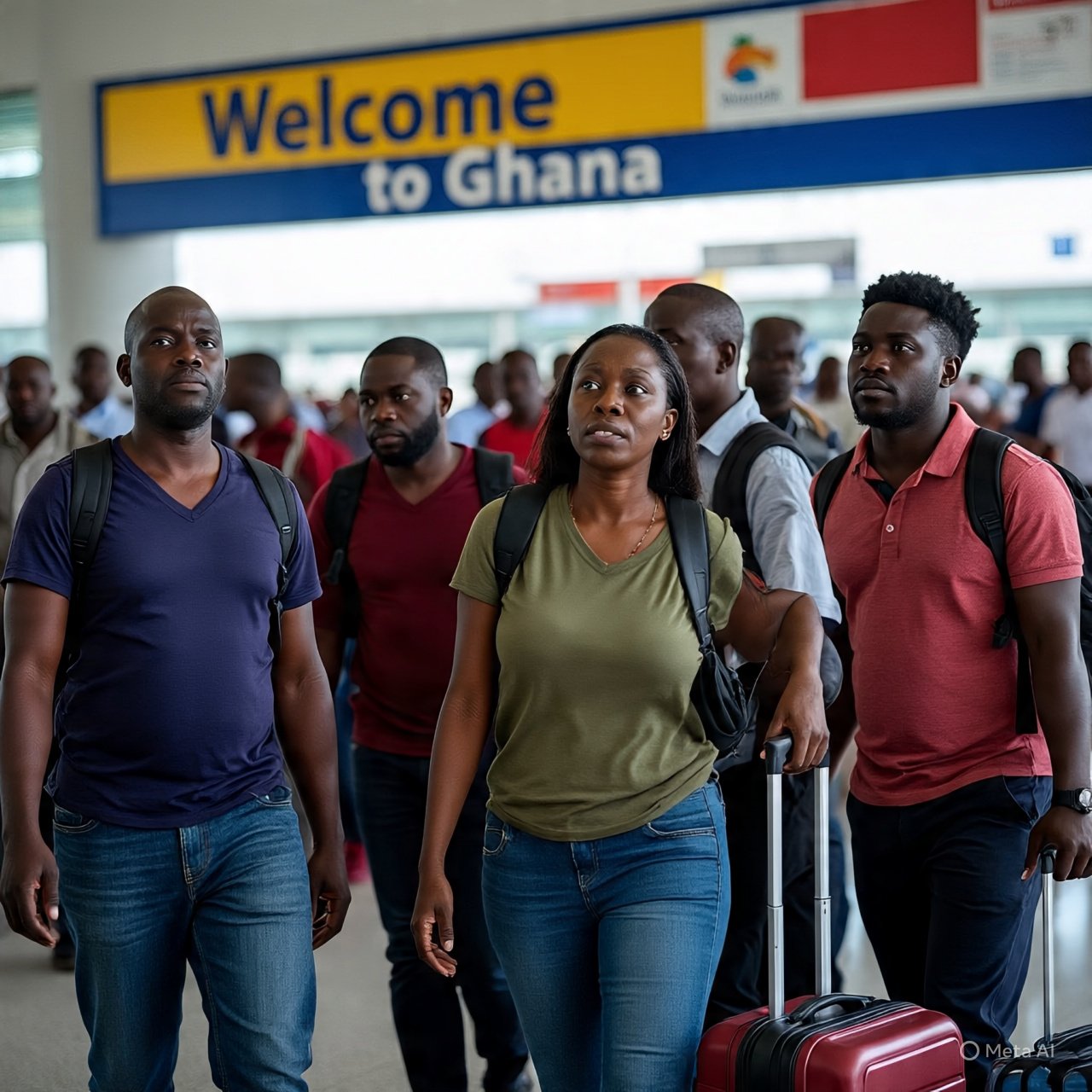Deported to Limbo: West African Migrants Sue After US Removal Leads to Ghanaian Detention
ACCRA, Ghana – A group of West African migrants, deported from the United States only to find themselves imprisoned upon arrival in Ghana, have launched a landmark lawsuit against the Ghanaian government, alleging unlawful detention and human rights abuses. The case, filed in a Ghanaian high court, highlights a complex and troubling web of international migration policy, diplomatic agreements, and the often-overlooked fate of individuals caught between nations.
The plaintiffs, originally from countries including Mali, Senegal, and Mauritania, were deported by U.S. Immigration and Customs Enforcement (ICE) on a charter flight to Ghana’s Kotoka International Airport in early September. Despite Ghana not being their country of origin, they were accepted under a bilateral agreement. However, instead of being released, they were immediately taken into custody by Ghanaian authorities and transferred to a detention center, where they have remained for weeks without formal charges or a clear path to release.
The lawsuit, as first reported by France 24, argues that their detention is arbitrary and unconstitutional. Their lawyers are seeking a court order for their immediate release, asserting that their clients’ fundamental rights have been violated. The case throws a spotlight on the practice of “third-country” deportations, where the U.S. removes individuals to nations other than their citizenship, often relying on fragile diplomatic arrangements that can leave deportees in legal limbo.
“My clients were dumped in a country they do not know and then locked up without any reason. They have not committed any crime under Ghanaian law. This is a severe miscarriage of justice and a blatant violation of their dignity and rights.”
This statement from a human rights lawyer representing the detainees underscores the core of the legal challenge. The situation raises urgent questions about the responsibilities of both the deporting and receiving countries in such arrangements. While the U.S. considers the deportation process complete upon the individual’s arrival in the agreed-upon nation, the reality for the deportees is often just the beginning of a new ordeal.
Ghana’s government has defended its actions, citing security protocols. Officials stated that the individuals arrived without valid travel documents for their final destinations, necessitating a period of vetting and administrative processing to verify their identities and arrange onward travel. However, critics and human rights organizations counter that such processing should not equate to incarceration in prison-like conditions without due process.
The plight of these detainees is part of a broader, concerning pattern. A recent investigation by Human Rights Watch has documented Ghana’s practice of detaining and sometimes refouling asylum seekers and migrants, putting them at risk of serious abuse upon return to their home countries. This new lawsuit suggests that individuals deported from the West are also vulnerable to these practices, caught in a system ill-equipped to handle their cases humanely.
For the United States, the case exposes the potential human rights ramifications of its deportation machinery. The U.S. routinely negotiates agreements with countries to accept deportees, but monitoring what happens to individuals after they are removed appears to be limited. This incident prompts a critical examination of the due diligence conducted by U.S. authorities before carrying out third-country removals to ensure that returnees will not face arbitrary detention or other rights violations.
“This case is a stark reminder that deportation does not end a person’s journey; it often propels them into a new cycle of uncertainty and vulnerability. The U.S. and other nations have a responsibility to ensure their immigration enforcement actions do not directly lead to human rights abuses elsewhere.”
This perspective from a regional migration expert, as reported in The New York Times coverage of the lawsuit, highlights the international dimension of the crisis. It challenges the notion of deportation as a simple, conclusive act and reframes it as a transfer of responsibility that can have dire consequences if not managed with care and oversight.
Inside the detention center, conditions are described as cramped and unsanitary, with limited access to legal counsel or consular services from their countries of origin. The psychological toll on the detainees is immense, having traded one form of confinement in the U.S. for another in Ghana, with no end in sight. Their families, many of whom are still in the U.S., are desperate for their release and safe passage to their home countries.
As the Ghanaian high court considers the case, its decision will be closely watched by international human rights groups, governments, and policymakers. A ruling in favor of the detainees could set a powerful precedent, forcing a reevaluation of deportation agreements and the protocols surrounding the reception of deportees. It would affirm that individuals, regardless of their immigration status, are entitled to fundamental rights and protection from arbitrary imprisonment.
Conversely, a ruling against them could embolden the use of detention for administrative purposes and solidify a practice that rights groups condemn as illegal. Ultimately, this lawsuit is more than a quest for freedom for a few dozen individuals; it is a battle over accountability, the rule of law, and the ethical contours of global migration enforcement in the 21st century.


